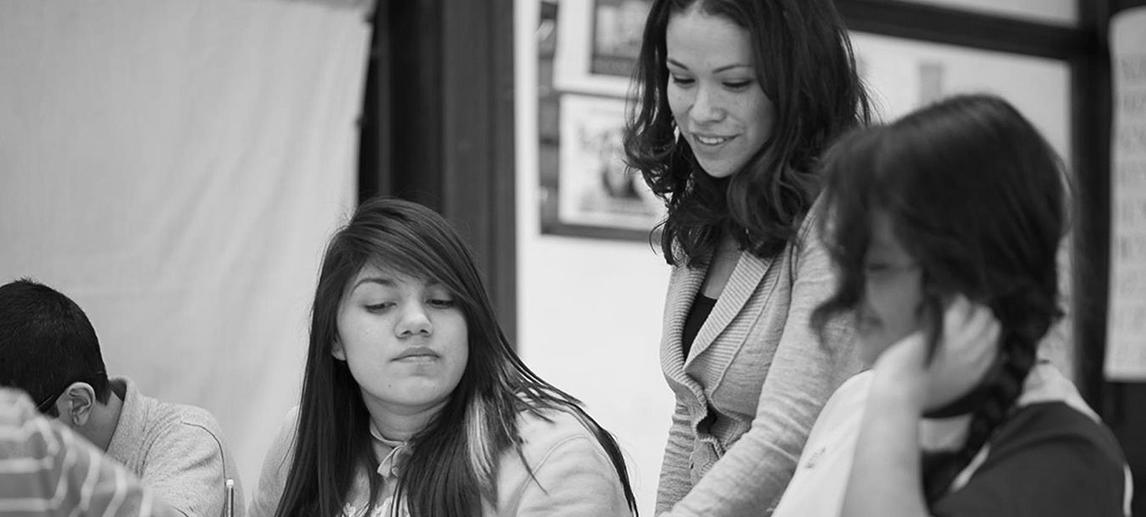
education.uic.edu
For universities job one is serving students one at a time, but they are not customers. Patients maybe, clients perhaps, hopefully subscribers, but there is no fixed product or performance guarantee. Only hope, and servicing hope requires several basic understandings.
Expectation — Institutions should define reasonable expectations and marks of preparedness for prospective students. If a university “takes all comers,” it may diminish standards of performance in order to appeal to, serve a larger audience, and collect more fees. On the other hand, inflated entry requirements may represent “belonging” akin to a country club membership, rather than an educational experience.
Preparedness — Students with different preparation and life experiences must be treated in different ways. A community college transfer student should receive differently tailored attention than an 18-year-old freshman coming directly from high school. Increasingly, students come with dual-enrollment credits, college courses taken in high school. Many of these students enter the junior year of college directly, with an associate’s degree in their back pocket, but no “campus experience.” The 35-year-old working parent, single or married, requires yet another kind of treatment. Universities traditionally catered to one kind of student. Background, preparation, expectations were monolithic. No longer. Hiding from these realities causes an institution to falter.
Cost — Communicating accurate costs of study is essential. Apart from tuition and fees, the costs of living, food and textbooks are all markedly increasing. Effective service requires transparency. The honest impact of debt burdens on employment opportunities, home and automobile purchases, and other aspirations for most Americans must enter the calculation of consideration. Serving students by helping them understand the lifetime impact of over-borrowing is not optional; it is part of our job.
Challenges — Good universities will be intellectually challenging, knitting together required courses in the humanities, the arts, government, mathematics, and science, requiring critical thinking on the part of the student relative to their chosen vocation. Such coursework should help guide career choice, not simply be a get-it-out-of-the-way experience for students. At student orientations 40 years ago it was common to hear someone from the front of the room say, “Look to the left and look to the right…one of those people will not be here in four years.” While that perspective represents an unproductive “weed out culture,” it is undeniably true that many who start will not finish. Some fall by the wayside because of a lack of interest and others because they cannot meet the challenges and rigor of a good educational process.
High performance standards and “scaffolding” or support should be married to create genuine benefit. Grade inflation, and it is prevalent, might lead to higher graduation rates and more “satisfied customers,” but is fundamentally a disservice feeding an entitlement mindset. Furthermore, the marketplace will unremittingly tell the truth. Lying to students about their ability or performance is seed corn for a life of disappointment. Passion and energy allow people to meet challenges.
Compassion — Universities should indicate an interest in seeing students complete degrees in a timely fashion. The number of graduates surely measures university performance, but that is not enough. Students must graduate with vocational abilities and marketable skills so that they can find a job. No matter how much someone talks about the love of wisdom — the root of the word philosophy, that talk is hollow if students leave without job skills. Confounding the picture — universities don’t serve well if job training is all they do.
Idiosyncrasies — Benefit accrues when faculty and staff pay attention to each student individually. Large classes make it difficult for faculty to know students. Students in classrooms that resemble feedlots are not typically well served. A culture that places some of the most experienced faculty in front of the least experienced students in small groups serves both well. Each learns from the other.
Regional Responsiveness — The best institutions serve local folks first. A desire for international or out-of-state students that steps over the local population may be well intended — the books might balance on the backs of these higher paying students, but it is misplaced. All education is local. One of WTAMU’s most successful online programs, the MBA, enrolls students from across the nation and world. Multiple ranking systems consistently place it in the top decile of similar programs. Faculty are required to teach on campus if they teach online. In addition, online faculty reside in this region. The values of the people of the Panhandle nourish the educational values of WTAMU.
Expectations, preparation, costs, challenges, compassion, individualized attention, and regional responsiveness are all earmarks of service to students. Good universities serve students with and through these understandings.



